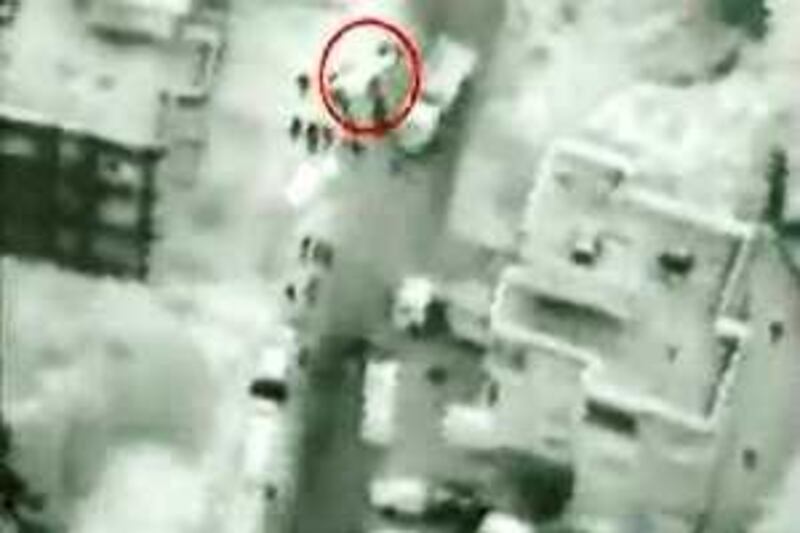BEIRUT // The United Nations Security Council was expected to discuss a report on efforts to disarm all of Lebanon's non-state actors yesterday even as an Israeli representative told UN officials that Israel would continue espionage activities in violation of a UN-monitored ceasefire.
Lebanon has filed a litany of complaints against Israel over a series of incidents in the past year that saw more than 70 Lebanese citizens accused of spying for Israel, multiple confirmed and suspected violations of Lebanese territory by the Israeli military, as well as a series of explosions in south Lebanon that included self-destructing eavesdropping devices apparently designed to tap into Hizbollah's private telephone network.
For its part, Israel has pointed at two of the explosions - which appeared to be of Hizbollah weapons stockpiles - as proof that the group was re-arming south of the Litani River in violation of UN Resolution 1701, which ended the July 2006 hostilities between the two. Lebanon responded with the argument that Israeli intelligence activities - recruiting spies, border infiltrations by commando teams and over-flights by Israeli aircraft - constitute violations of the same agreement.
After the discovery last week of three devices buried along Lebanon's border with Israel that appeared to be eavesdropping devices that later exploded, Lebanon filed a formal complaint with the UN, asking for an investigation. After a UN request to the Israeli military for "clarification" was rebuffed, a meeting was held along the border last Wednesday with representatives of the UN Interim Force for Lebanon, the Israeli Defence Forces and the Lebanese army.
The devices, according to the UN representatives, appeared to have been placed during the 2006 war, but Lebanese officials argued that they were installed far more recently, which would have required an Israeli incursion into Lebanese territory. At the meeting, according to Lebanese and Israeli media reports and confirmed by a UN official, a representative for Israel refused the request to halt intelligence operations, arguing that as long as Hizbollah remained a threat to Israel, the activities would continue.
"In view of all this we do not consider this instance [of listening devices] as an Israeli violation of Resolution 1701," said Brigadier Yossi Hayman, the head of the strategic branch in the general staff's planning department, according to the press reports. "Israel will continue to use all means necessary to defend its citizens," Brig Hayman was quoted as saying, while pointedly refusing to deny that the equipment was Israeli, according to a western diplomat quoted by Israeli media. Most of the incidents in south Lebanon are subject to Israel's strict military censorship laws, forcing the Israeli press to rely on non-Israeli sourcing for articles about the issue.
Brig Hayman argued that Israel could not be expected to wait passively for another Hizbollah attack, such as the operation that killed almost a dozen soldiers and sparked the 2006 war. The Security Council discussion yesterday will address an earlier resolution - known as 1559 - that requires all militias in Lebanon to disarm or be absorbed into the country's armed forces. The 2004 resolution is widely seen as an attempt to get Hizbollah and several Palestinian groups to discard their weapons, an outcome that appears extremely unlikely.
Lebanese newspapers loyal to the pro-western majority coalition quoted official sources as expressing extreme disappointment with the report, which has yet to officially be made public and which fails to demand an end to Syrian operations in Lebanon. They also criticise its use of weak language that does little to address what they see as Hizbollah's mini-state status. Last week, the UN secretary general, Ban Ki-moon, described Hizbollah and the Palestinian fighters as a destabilising force in Lebanon.
Mr Ban said he took recent reports "of a proliferation of extremist groups' activities and of arms in Lebanon", seriously but claimed the UN lacks means to independently verify them. He went on to say Hizbollah's military wing "poses first and foremost a key challenge to the safety of Lebanese civilians, and to the government's monopoly on the legitimate use of force". mprothero@thenational.ae





